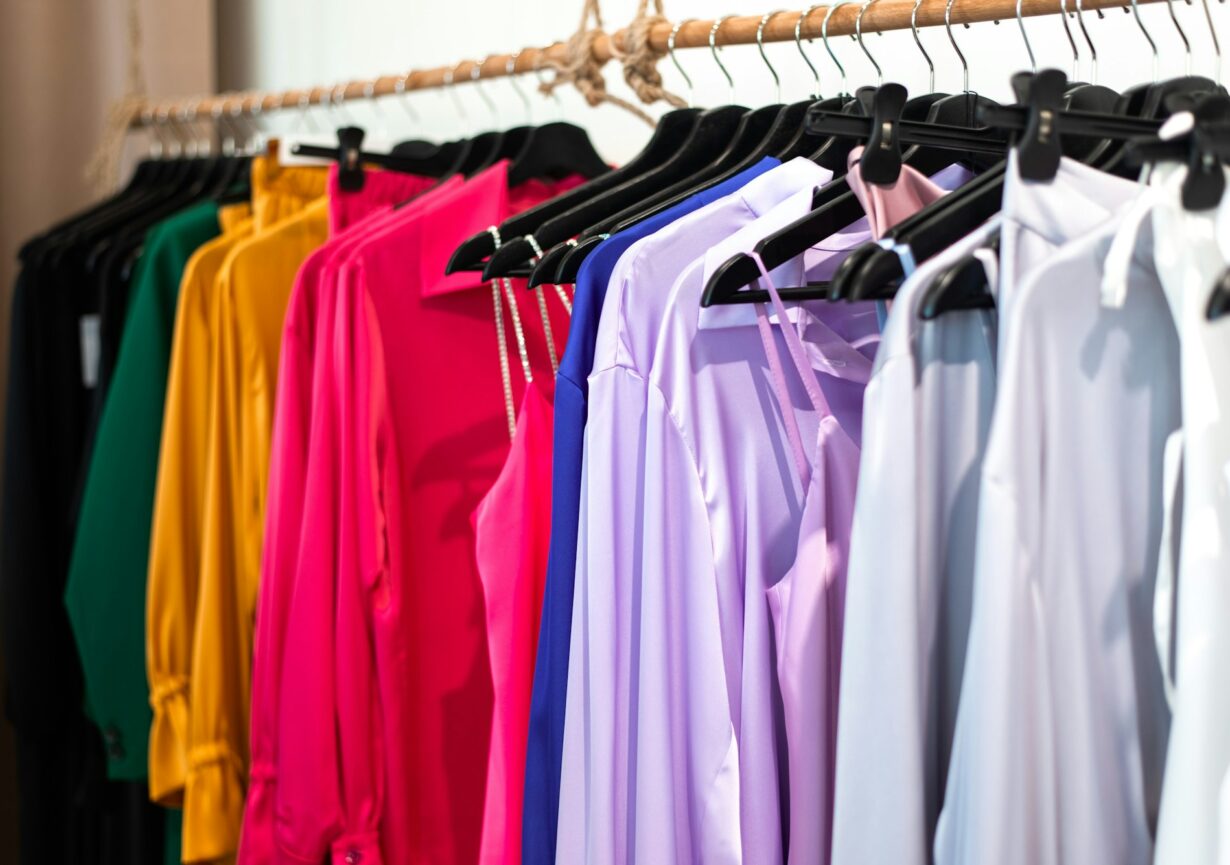Fashion is often viewed as a form of self-expression, but its impact goes beyond mere aesthetics. Clothing choices can significantly influence our mood, behavior, and even how we perceive ourselves. This article delves into the psychology of fashion, exploring how what we wear affects our confidence and overall mental well-being. We will examine the relationship between clothing and mood, the concept of “enclothed cognition,” and how fashion can empower individuals.
1. The Relationship Between Clothing and Mood
A. Color Psychology in Fashion
The colors we choose to wear play a crucial role in our emotional state. Color psychology suggests that different hues evoke specific feelings and reactions. For example, wearing vibrant colors like red and yellow can instill feelings of energy and enthusiasm, while softer shades such as blue and green promote calmness and tranquility.
When we wear colors that align with our desired mood, it can create a positive feedback loop. For instance, wearing bright colors on a gloomy day might uplift our spirits, while donning darker shades during challenging times can inadvertently reinforce negative feelings.
Furthermore, studies have shown that colors can also affect how others perceive us. For example, wearing black can convey authority and professionalism, whereas pastel shades might give off a more approachable and friendly vibe. This interplay between color choice, mood, and social perception highlights the powerful influence fashion has on our emotional state.
B. The Influence of Fabric and Texture
Beyond color, the fabric and texture of clothing can also impact our mood. Soft, comfortable fabrics like cotton or cashmere can create a sense of comfort and security, while stiffer materials may evoke a feeling of restriction or formality. When we wear clothes that feel good against our skin, we are more likely to feel positive and confident.
Moreover, the tactile experience of clothing can also trigger memories and emotions. For instance, a favorite sweater may evoke feelings of warmth and nostalgia, while a new outfit may elicit excitement or anxiety, depending on how we perceive it. Understanding how fabric and texture affect our mood can help us make more intentional choices in our wardrobe.
2. Enclothed Cognition: The Power of Clothing
A. What is Enclothed Cognition?
The term “enclothed cognition” refers to the psychological phenomenon where the clothing we wear influences our thoughts, feelings, and behaviors. This concept was first explored in a study conducted by researchers Hajo Adam and Adam D. Galinsky, who found that wearing a lab coat improved participants’ attention and performance on tasks, suggesting that our clothing choices can enhance cognitive functioning.
The implications of enclothed cognition extend beyond mere productivity. When we wear clothing that we associate with success or professionalism, we are likely to embody those traits. For example, wearing formal attire may lead to increased feelings of competence and authority, while casual clothing might promote a more relaxed and informal demeanor. Understanding enclothed cognition can empower individuals to use their clothing choices to foster desired mindsets and behaviors.
B. Clothing as a Tool for Self-Expression
Fashion serves as a powerful form of self-expression, allowing individuals to communicate their identity, values, and aspirations. The clothing we choose can reflect our personalities, interests, and even our current mood. This self-expression can significantly impact our confidence and how we navigate social situations.
When we wear outfits that resonate with our true selves, we are more likely to feel authentic and empowered. This sense of authenticity can lead to increased confidence, allowing us to engage more fully in our interactions with others. Conversely, wearing clothes that don’t align with our identity can create discomfort and insecurity, hindering our self-esteem.
3. The Impact of Fashion on Confidence
A. Dressing for Success
The concept of “dressing for success” highlights the connection between our clothing choices and our self-esteem. When we dress in a way that makes us feel good, we project confidence and positivity. This confidence can translate into better performance in various aspects of life, from work to social interactions.
Studies have shown that individuals who dress well are often perceived as more competent and capable. This perception can create a self-fulfilling prophecy; the more confident we feel in our appearance, the more likely we are to perform well and achieve our goals.
Moreover, the act of putting effort into our appearance can foster a sense of pride and self-worth. When we take the time to choose outfits that reflect our style and personality, we send a message to ourselves and others that we value our well-being and image.
B. The Role of Fashion in Body Image
Fashion also plays a critical role in how we perceive our bodies and ourselves. The fashion industry has long been criticized for promoting narrow beauty standards, which can negatively impact body image and self-esteem. However, there is a growing movement towards inclusivity and body positivity in fashion, encouraging individuals to embrace their unique bodies and styles.
Wearing clothing that flatters our bodies and makes us feel good can significantly enhance our body image. When we feel comfortable and confident in our attire, we are more likely to appreciate our bodies, regardless of societal standards. This shift in mindset is essential for cultivating a healthy relationship with ourselves and fostering positive body image.
4. Fashion and Mental Health
A. Clothing as a Coping Mechanism
For many individuals, clothing can serve as a form of coping during difficult times. Fashion can provide a sense of control and agency when faced with challenges, such as anxiety or depression. Choosing outfits that make us feel good can act as a small yet impactful way to boost mood and reinforce a positive mindset.
Moreover, engaging with fashion can serve as a creative outlet, allowing individuals to express their emotions and experiences. This creative expression can provide a therapeutic effect, helping individuals process feelings and navigate mental health challenges.
B. The Role of Fashion in Social Connections
Fashion can also play a vital role in fostering social connections. Sharing style tips, discussing trends, or participating in fashion communities can create a sense of belonging and connection with others. These social interactions can positively impact mental health, reducing feelings of isolation and loneliness.
Wearing clothing that aligns with a specific subculture or community can strengthen identity and promote a sense of belonging. This connection can lead to increased confidence and overall well-being, emphasizing the importance of fashion in our social lives.
5. Tips for Harnessing the Psychology of Fashion
A. Dressing Intentionally
To harness the psychological benefits of fashion, individuals should consider dressing intentionally. This involves being mindful of how specific colors, fabrics, and styles affect mood and confidence. Experimenting with different outfits and identifying what makes you feel good can empower you to curate a wardrobe that supports your mental well-being.
B. Embracing Personal Style
Developing a personal style that reflects your identity is essential for fostering confidence. Embrace clothing that resonates with your personality and values, and don’t be afraid to step outside of conventional fashion norms. Celebrating your uniqueness through your style can enhance self-esteem and promote a positive self-image.
C. Prioritizing Comfort and Fit
Choosing comfortable, well-fitting clothing is crucial for maintaining a positive mindset. Invest in pieces that make you feel good and allow for freedom of movement. When you feel comfortable in your clothes, you’re more likely to exude confidence and positivity.
Conclusion
The psychology of fashion reveals the profound impact that clothing has on our mood, confidence, and overall mental well-being. From color choices to the concept of enclothed cognition, understanding how fashion influences our emotions can empower us to make intentional clothing decisions that enhance our self-esteem and body image. As we navigate our personal styles and engage with fashion, we can harness its psychological benefits to foster a more positive and confident outlook on life. By embracing our unique identities through fashion, we not only enhance our self-expression but also cultivate a deeper connection with ourselves and those around us.


